Meta-reasoning in LLMs: maximizing corporate value
It’s not just about AI generating responses; it’s about building models that can reflect on their own reasoning, adapt their strategies, and improve over time. This is something our team has been working hard on—applying meta-reasoning to corporate problems to help companies make better decisions. With this post, I’ll walk you through how we’ve been applying this approach and what kind of results we’ve seen.
What is meta-reasoning?
Meta-reasoning refers to the process by which an entity, such as a human or AI, monitors and adjusts its problem-solving strategies in real-time to better suit a given task. In artificial intelligence, this involves dynamically selecting the most appropriate reasoning method based on task-specific input, optimizing both performance and efficiency. Inspired by human cognitive processes, meta-reasoning enables systems like LLMs to evaluate their reasoning paths, choose effective approaches, and adapt to various challenges across different domains. This adaptability allows them to excel in complex tasks that require diverse reasoning strategies.
What are LLMs (Large Language Models)?
LLMs, or Large Language Models, are advanced artificial intelligence models trained on vast amounts of text data to understand, generate, and manipulate human language. These models are designed using machine learning techniques, particularly deep learning, to perform a wide range of language-related tasks such as translation, summarization, text generation, question answering, and even code completion. LLMs, like OpenAI’s GPT or Google’s BERT, can process context, predict next words, and create coherent responses by analyzing patterns in the data they were trained on. Their size (measured in billions of parameters) allows them to handle complex linguistic tasks with high accuracy.
How meta-reasoning enhances value in LLMs (Large Language Models)
Many companies are still searching for ways to extract maximum value from LLMs. The corporate world is much more complex than the day-to-day scenarios we see on the consumer side, and this complexity can be frustrating. But this complexity is precisely why meta-reasoning is such a powerful tool.
Meta-reasoning in LLMs allows AI to reflect on its thought process, identify errors, and adjust its strategies dynamically. With this capability, LLMs can operate more effectively in complex business environments, handling evolving demands and providing deeper insights. Instead of just generating responses, the AI learns to understand context, adapt to new information, and solve problems dynamically.
This becomes even more powerful when companies integrate AI in ways that complement human ingenuity. AI is not here to replace people—it’s here to enhance their ability to solve problems and make decisions. But, as always, the human element is key:
“When AI companies say that a model has reached expert-level reasoning, it means that if you do your part, it will complement your work excellently—or even better than we’re accustomed to.”
Navigating the complexities of any business problem still requires human expertise and creativity. The question companies need to ask themselves is:
“Where are the people in your company able to do it?”
Optimizing product and pricing mix with multi-agent systems
A study by our team explored about applying meta-reasoning to corporate challenges.
In this case, we focused on determining the product and pricing mix that would maximize profits while minimizing inventory, using weights assigned by available discounts and always considering the final customer.
The first layer involves agents that check systems containing constraint variables—such as sales cycles, current inventory positions, seasonal timing, prices, and profit margins. Once that’s set, meta-reasoning kicks in, using symbolic representation instead of semantics, which, so far, has proven to be more effective for business environments.
The goal of the agent is to balance margin, inventory, and sales probability by adjusting the mix and pricing strategies. It follows a sequence of checks and techniques to make those adjustments. This is where multi-agent systems really shine—they enable companies to save time and reduce development costs, though setting up these systems requires a lot of effort.
As I like to say, “There’s no free lunch, but the results are impressive.”
Final thoughts on meta-reasoning in LLMs
Meta-reasoning is transforming how LLMs are used in business, helping companies move beyond basic automation to strategic problem-solving. From optimizing product and pricing strategies to handling complex processes, this approach enables organizations to gain a competitive edge. But it’s not just about the AI—it’s about having the right people to leverage these tools effectively.
At the end of the day, AI is most valuable when it works alongside human creativity and expertise. With the right combination of technology and talent, companies can unlock the full potential of AI and navigate even the most challenging business landscapes. For a deeper dive into how data and AI are transforming productivity across industries, check out our recent event, How Data & AI Can Improve Productivity: Real-World Examples, held at DMZ in Toronto, where experts explored the real-world applications of AI. You can watch the webinar-on-demand to see how companies are already benefiting from these advancements.

